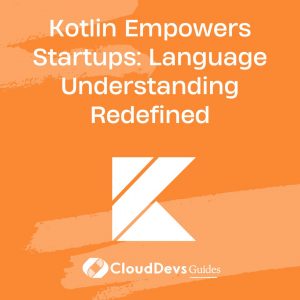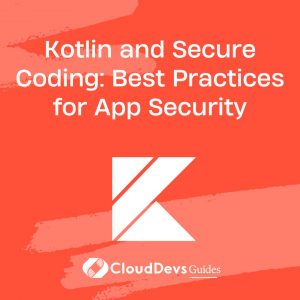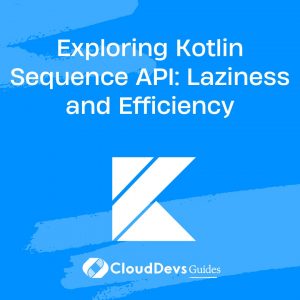Kotlin Empowers Startups: Language Understanding Redefined
In the ever-evolving landscape of technology, natural language processing (NLP) has emerged as a crucial field with far-reaching applications. From chatbots and virtual assistants to sentiment analysis and content recommendation, NLP plays a pivotal role in enhancing user experiences. In this blog post, we’ll explore how Kotlin, a versatile programming language, can be harnessed to build language understanding applications.

Table of Contents
1. The Rise of Kotlin
Kotlin, often dubbed as the language of the future, has gained widespread popularity among developers and tech enthusiasts. Known for its conciseness, safety features, and interoperability with Java, Kotlin offers a powerful toolkit for building a wide range of applications. Its clean syntax and strong type system make it an excellent choice for NLP projects.
2. Getting Started with Kotlin for NLP
Before diving into the specifics of NLP with Kotlin, it’s essential to have a grasp of the basics. If you’re new to Kotlin, consider going through the official Kotlin documentation and tutorials to get acquainted with the language.
Once you’re comfortable with Kotlin’s syntax and core concepts, let’s explore how you can leverage it for NLP tasks:
2.1. Text Processing
Kotlin’s string manipulation capabilities make it ideal for text processing tasks. Whether you’re cleaning and tokenizing text data or extracting specific information, Kotlin’s string functions and regular expressions simplify the process.
Example: Use Kotlin to preprocess a text corpus and extract relevant keywords for a content recommendation system.
2.2. Libraries and Frameworks
Kotlin seamlessly integrates with popular NLP libraries and frameworks like spaCy, NLTK, and Stanford NLP. Leveraging these libraries, you can perform advanced NLP tasks such as part-of-speech tagging, named entity recognition, and sentiment analysis.
Example: Integrate spaCy into your Kotlin project to analyze sentiment in user reviews and feedback.
2.3. Machine Learning
Kotlin’s compatibility with machine learning libraries like TensorFlow and Keras enables you to build custom NLP models. You can create neural networks for tasks such as text classification, language modeling, and sequence-to-sequence tasks.
Example: Train a deep learning model in Kotlin to perform sentiment analysis on social media data.
3. Real-World Examples
To illustrate the practical applications of Kotlin in NLP, let’s explore some real-world use cases:
3.1. Customer Support Chatbots
Early-stage startups can benefit from Kotlin-powered chatbots that provide automated customer support. These chatbots can understand user queries, extract relevant information, and provide tailored responses.
3.2. Market Sentiment Analysis
VC investors can use Kotlin-based NLP models to analyze market sentiment from news articles, social media, and financial reports. This can aid in making data-driven investment decisions.
3.3. Content Recommendation
Tech leaders can implement content recommendation systems using Kotlin’s text processing capabilities. These systems can analyze user behavior and preferences to suggest relevant articles, videos, or products.
Conclusion
In the world of startups, VC investments, and tech leadership, Kotlin’s versatility combined with the power of natural language processing opens up exciting opportunities. By harnessing Kotlin’s capabilities, you can build language understanding applications that enhance user experiences, make data-driven decisions, and stay ahead of the competition.
In this blog post, we’ve only scratched the surface of what’s possible with Kotlin and NLP. As you dive deeper into this dynamic field, you’ll discover countless ways to leverage these technologies for your business and innovation. So, roll up your sleeves, embrace the Kotlin language, and start building the future of language understanding.
Learn more:
- Official Kotlin Documentation – https://kotlinlang.org/docs/home.html
- spaCy NLP Library – https://spacy.io/
- TensorFlow Machine Learning Framework – https://www.tensorflow.org/
Table of Contents









